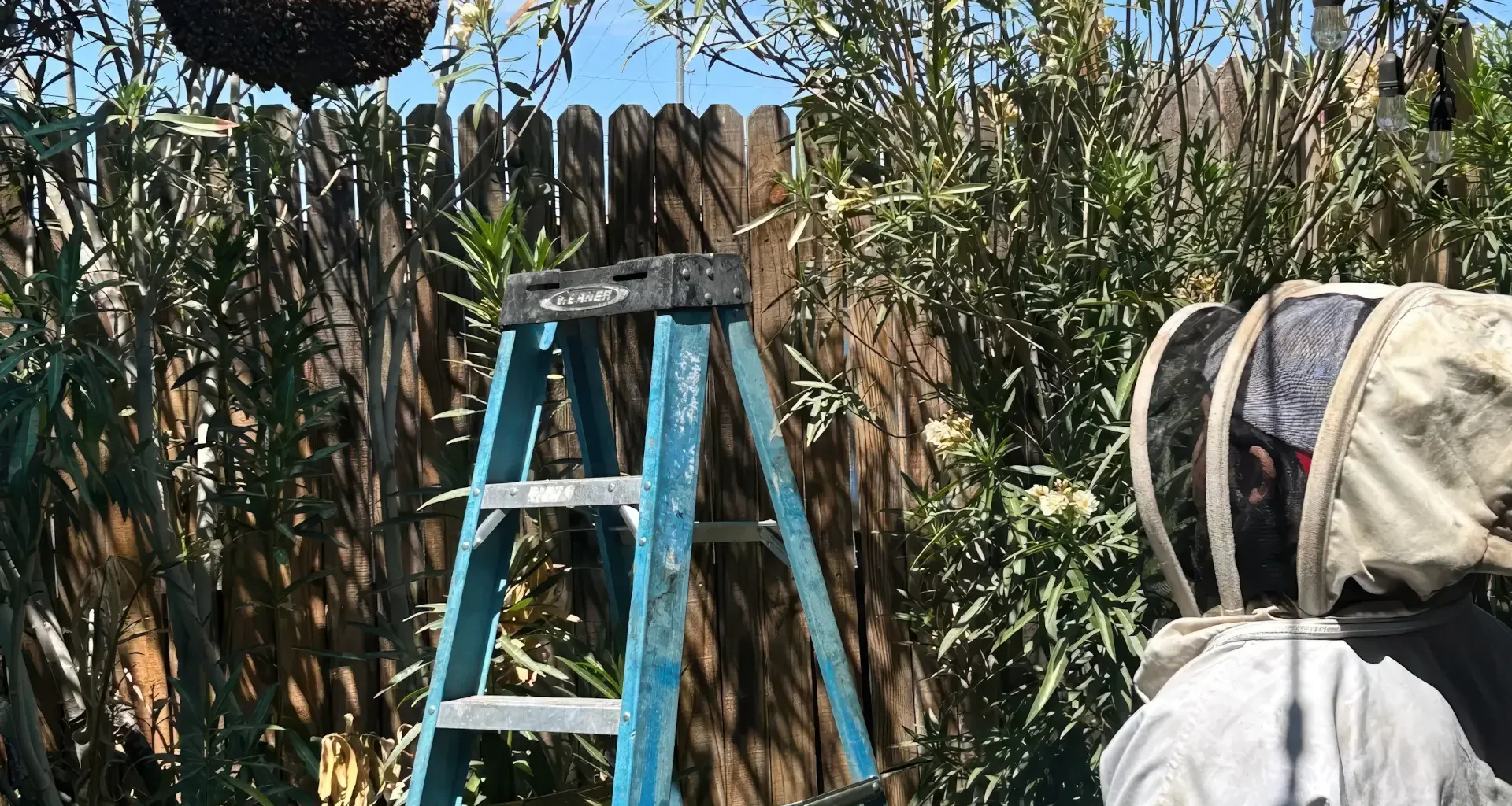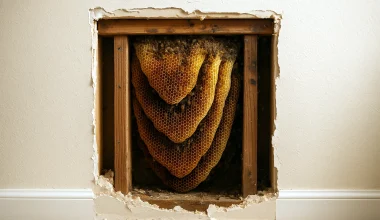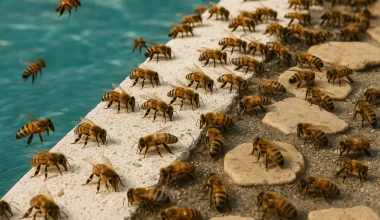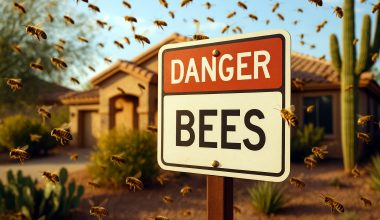When Phoenix homeowners type “bee hive removal near me,” it’s rarely out of curiosity. More often, it’s because something unexpected has appeared: buzzing in a block wall, bees slipping under roof tiles, or a visible comb growing from the eaves. Arizona’s long warm season makes our homes especially attractive to swarming colonies. This guide explains why hives form here, what dangers DIY attempts pose, and what professional removal really looks like in the Valley.
Why Bees Choose Phoenix Homes for Their Hives
Phoenix offers everything honeybees need: dry shelter, warmth, and access to water from pools and irrigation. Common hive spots we see every week include:
- Spanish-style roof tiles with open gaps underneath
- Stucco cracks and expansion joints in block walls
- Attic voids and soffits where vents or construction gaps exist
- Utility boxes, meter pits, and irrigation valve boxes
- Carports, sheds, and porch ceilings
What makes these locations tricky is that the colony you see on the outside is usually much larger inside. A small opening may hide multiple pounds of comb and tens of thousands of bees.
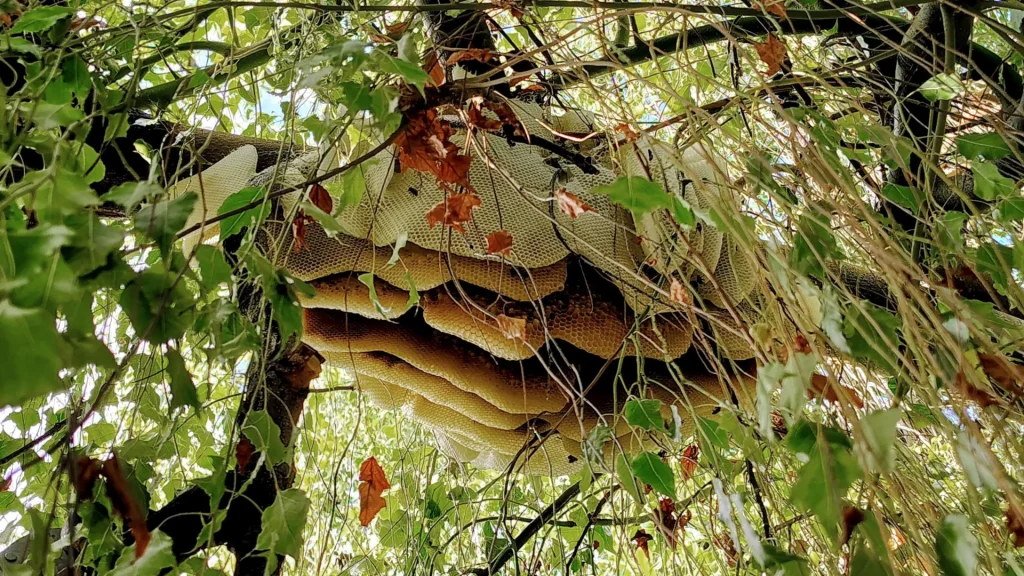
Why DIY Bee Removal Is a Risk in Arizona
While honeybees are essential pollinators, Arizona’s bee population has a higher percentage of defensive Africanized genetics than many states. Colonies here respond more aggressively to vibrations, sprays, or attempts to block their entrance.
Trying to solve the problem yourself can create more serious issues:
- Stinging danger: Defensive swarms may pursue perceived threats for hundreds of feet.
- Hidden honeycomb: Spraying bees without removing the comb leaves behind wax, brood, and honey that attract ants, roaches, rodents, and new bees.
- Structural damage: Honey left in walls or roofs melts in 100°+ Phoenix heat, staining ceilings and drywall.
- Liability: A DIY mishap that spreads bees toward neighbors, delivery drivers, or pets could cause costly harm.
That’s why professional bee removal is both safer and more cost-effective in the long run.
What Professional Bee Removal Looks Like
When our technicians respond to a hive call in Phoenix, the process usually follows these steps:
- Inspection & assessment
- Pinpointing entry points and confirming whether the colony is temporary (a swarm) or established with comb.
- Protective setup
- Creating safe zones, suiting up, and preparing containment equipment.
- Bee removal
- Using vacuums or live-removal tools to safely capture and relocate bees when possible.
- Honeycomb extraction
- Opening the affected area (roof tile, soffit, or wall section) to remove every trace of comb.
- Cleaning & scent neutralization
- Scrubbing residual wax, treating surfaces, and breaking scent trails so future swarms don’t return.
- Exclusion & repairs
- Sealing entry points and advising on necessary repairs to prevent re-infestation.
This complete approach ensures both safety and long-term results.

Same-Day Bee Removal Across the Valley
One advantage Phoenix homeowners have is fast local response. Our team covers the entire metro area:
Many removals can be scheduled same day during peak swarm season, especially in high-risk areas like schools, parks, and neighborhoods with lots of pools.
How Much Does Bee Removal Cost?
Costs depend on:
- Location of the hive (roof, wall, ground box, attic)
- Size and age of the colony
- Whether structural access or repairs are required
- Whether live relocation is possible
To learn more about typical pricing, see our full guide: How Much Does Bee Removal Cost in Phoenix?
Prevention: Keeping Bees from Coming Back
Professional removal ends the immediate problem, but long-term prevention is just as important. We recommend:
- Sealing gaps in stucco and rooflines with exterior-grade sealant
- Screening attic and soffit vents
- Repairing loose roof tiles
- Closing open irrigation and meter boxes
- Scheduling seasonal inspections before peak swarm months
A little preventive work now avoids costly removals later.
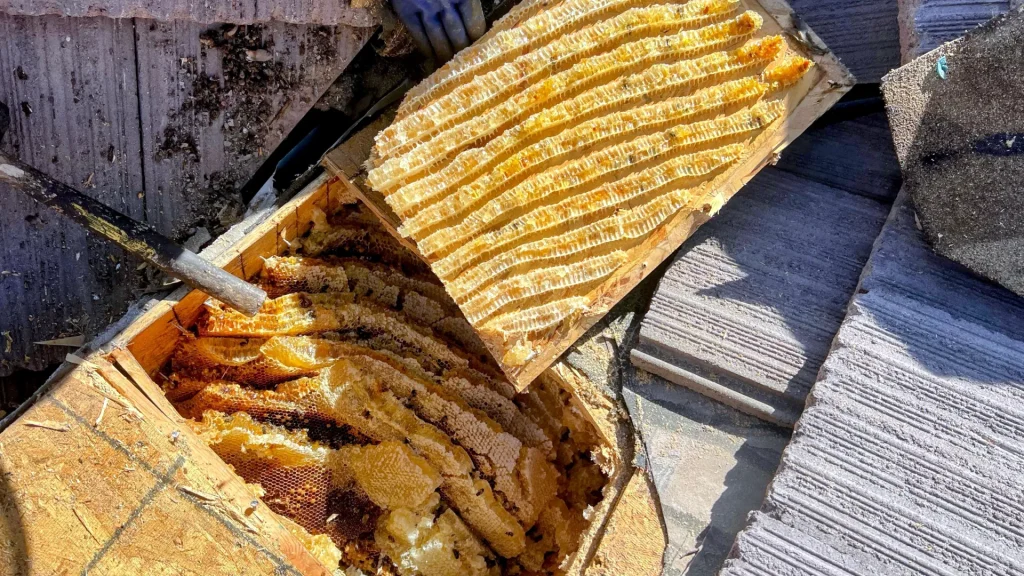
Live Bee Removal: When Relocation Is Possible
In many Phoenix removals, bees can be safely relocated to apiaries using containment equipment like bee buckets. Colonies then continue to thrive away from residential areas.
When colonies pose immediate public risk—such as aggressive swarms near playgrounds or schoolyards—different control methods may be required. Either way, our team explains all options before proceeding.
Learn more here: Live Bee Removal in Phoenix.
What To Do If You Spot a Hive Today
- Keep kids and pets inside.
- Do not attempt to spray or block the entrance.
- Avoid lingering near the hive—defensive bees can be triggered by movement or vibrations.
- Call a licensed removal company for safe, same-day help.
For immediate service, visit our Get a Quote page or call Bee Removal Phoenix directly.
FAQs About Bee Hive Removal in Phoenix
Is bee removal safe for my family and pets?
Yes—professional methods prioritize safety. DIY attempts, however, can put everyone at risk.
How fast can a technician arrive?
In most parts of Phoenix and the East/West Valley, same-day response is available.
Do you relocate the bees?
When conditions allow, yes. Many hives are relocated live to managed apiaries.
Will bees come back after removal?
Not if comb is fully removed, scent neutralization is done, and entry points are sealed.
